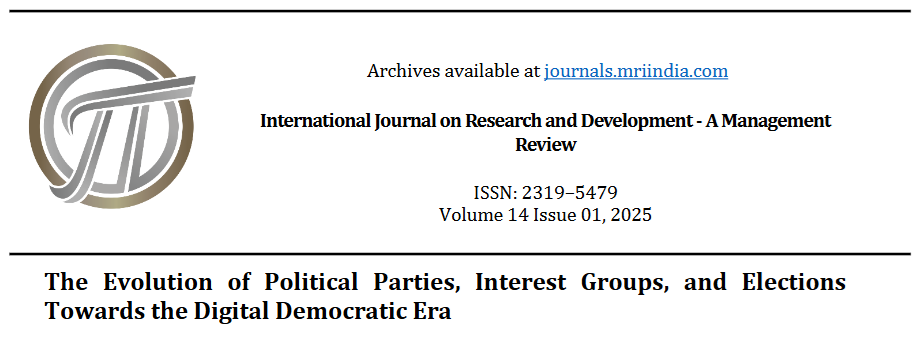The Evolution of Political Parties, Interest Groups, and Elections Towards the Digital Democratic Era
Main Article Content
Abstract
The transformation of digital technology has played a crucial role in the development of democratic systems worldwide. Political parties, interest groups, and election processes have been significantly influenced by digital advancements, leading to structural, procedural, and behavioral shifts among voters. Political parties must adapt to leverage digital platforms for communication with the public, election campaigns, and strategic planning. Similarly, interest groups can utilize digital media as a tool to gain support and influence policy-making. Furthermore, digital technology has impacted the election process through e-Voting systems and the application of artificial intelligence in managing voter data. While these advancements enhance efficiency and transparency, they also present risks such as cybersecurity threats and misinformation, which may undermine the legitimacy of election outcomes. This paper employs the concepts of digital democracy and comparative political theory to analyze trends and challenges, while proposing new approaches to enhance transparency, public participation, and equality in a digital democratic society.
Downloads
Article Details

This work is licensed under a Creative Commons Attribution-NoDerivatives 4.0 International License.
